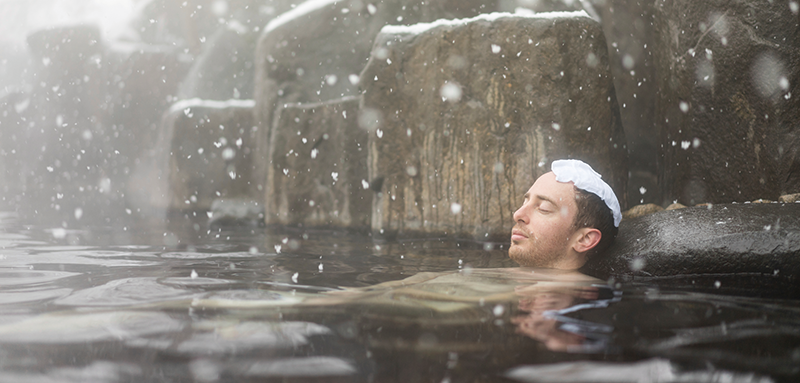To eat is to travel
There is not just one soup, but they change with the seasons. The main ingredients may be the same but each area will have its own particular variations of stock and seasoning. Even more than that, each household will have its own take on the recipe. So with that in mind we have asked for the very best example from each family.
Special soups, seasonal soups, and soups full of pride
There is not just one soup, but they change with the seasons. The main ingredients may be the same but each area will have its own particular variations of stock and seasoning. Even more than that, each household will have its own take on the recipe. So with that in mind we have asked for the very best example from each family…
Whale! Even though there is no ocean?
Whale Soup
This is a classic summer soup in Niigata. It is drunk to help get through the damp, humid heat of the summer months. There are several varieties that vary by area and might use a miso or a soy sauce base. In the past whale was an important source of protein in Japan.
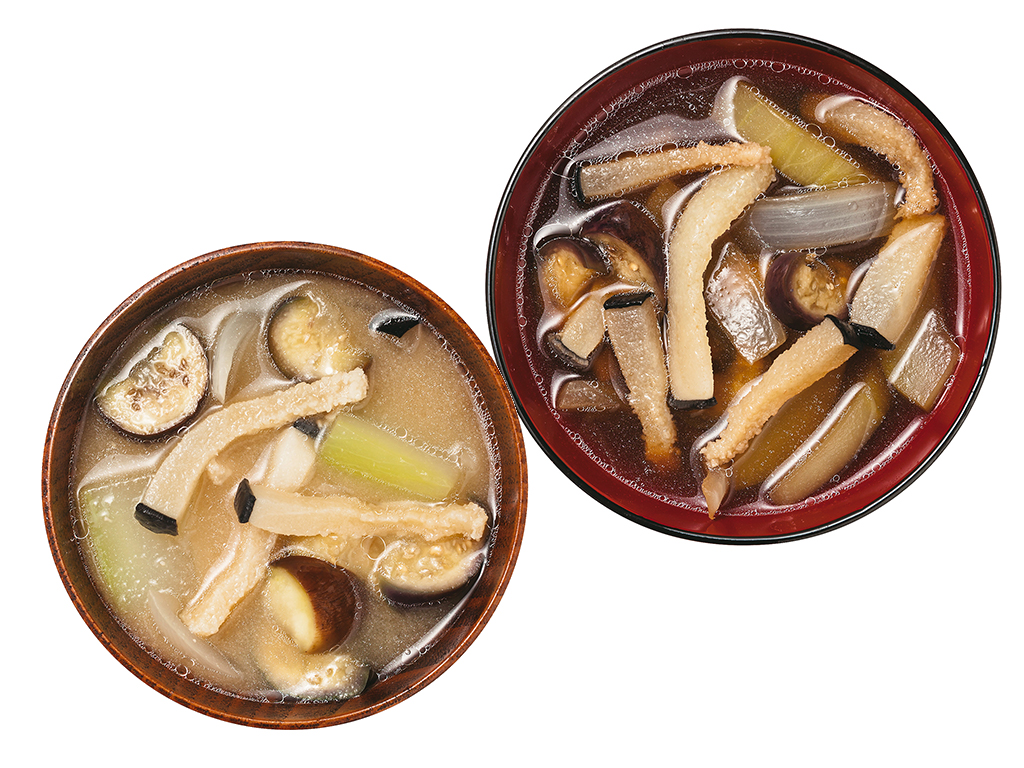
Soup with sake lees
This soup is very warming, especially in winter, because it contains sake lees. At YUKIGUNI, we also add fermented nozawana to this soup.
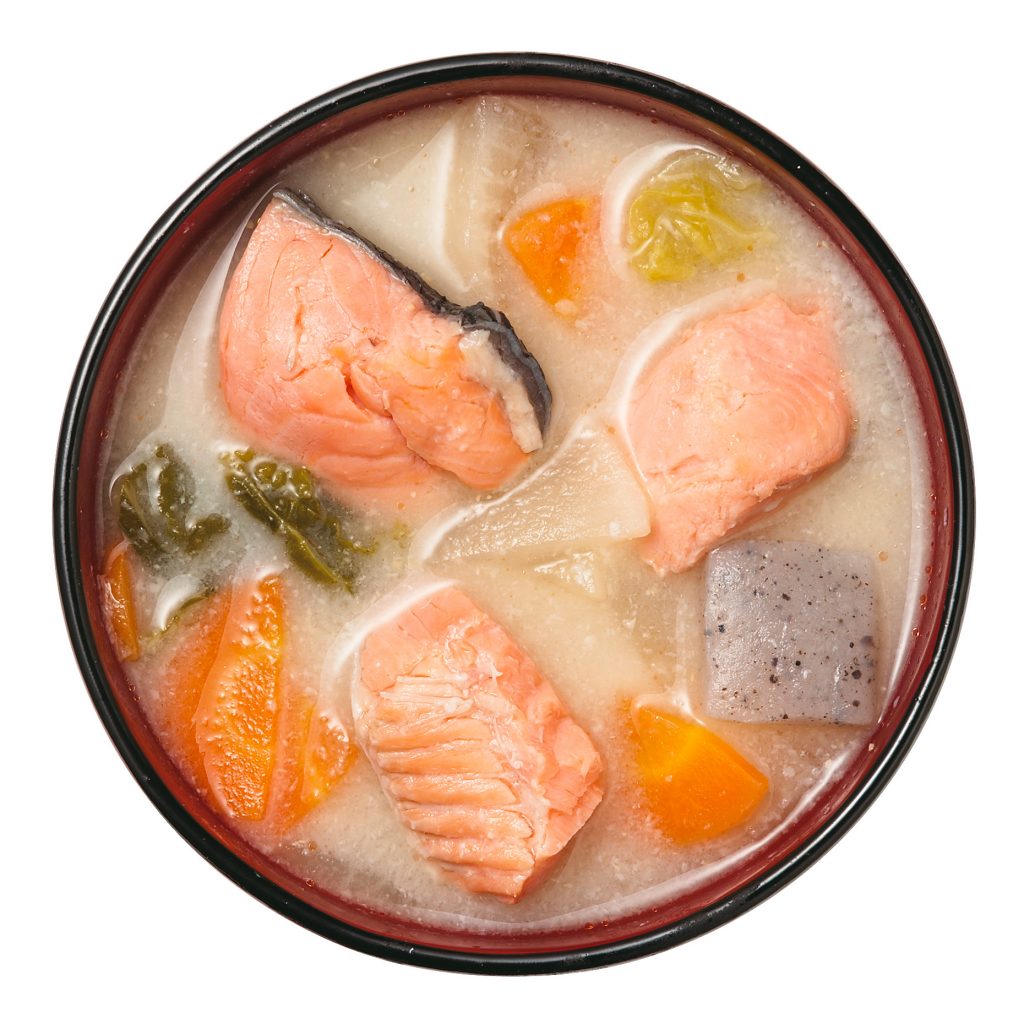
Are you one of those people who prefers mackerel? Or herring?
Mackerel and bamboo soup
This a miso soup that uses bamboo shoots and tinned mackerel. The different regions are split by those that like to use mackerel, and those that like to use herring.
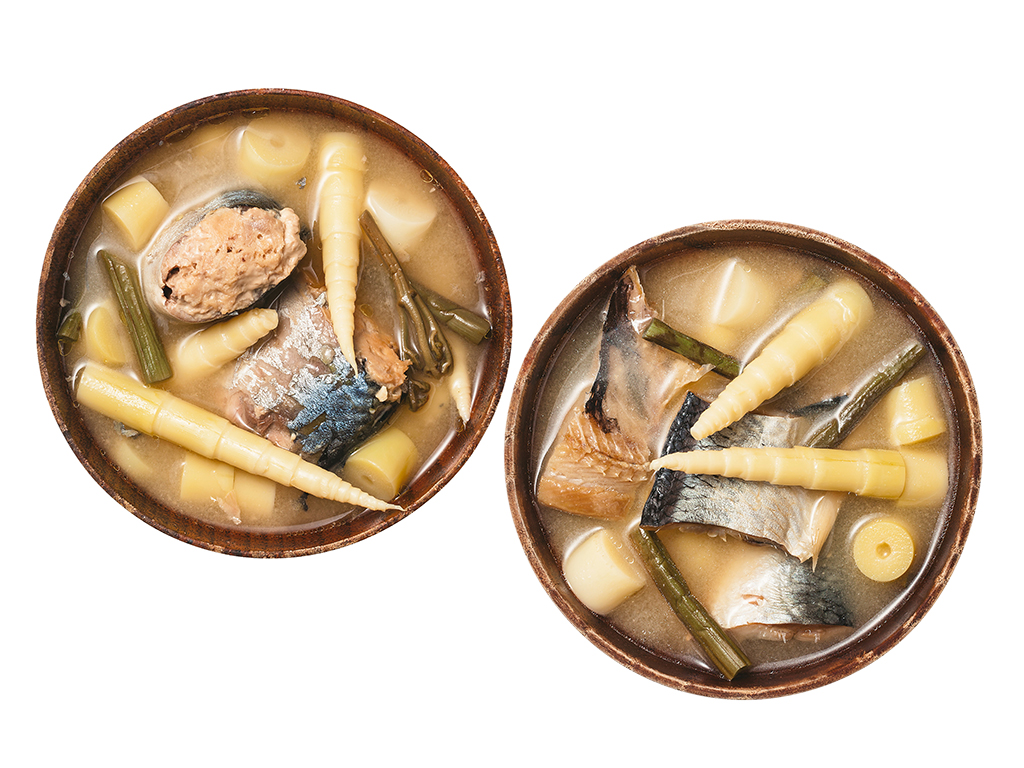
Soy flavor, or miso flavor
…and we are not talking about ramen.
Mushroom Soup
This is a classic autumn soup that is full of ingredients. Using the wild mushrooms that you yourself have picked makes it much more delicious than usual.
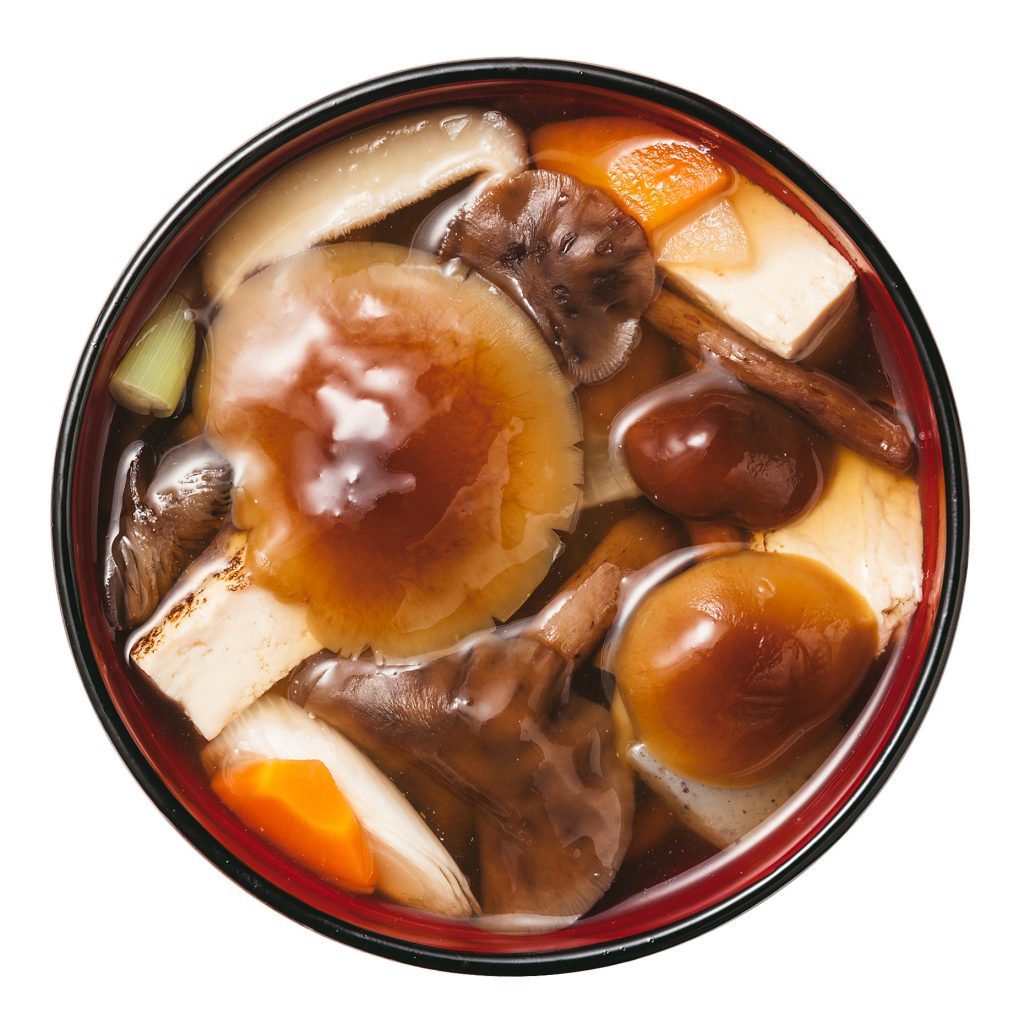
YUKIGUNI Hotpot
This is the the seasonal hotpot that incorporates the very special ingredients from around YUKIGUNI.
Let’s have a closer look.
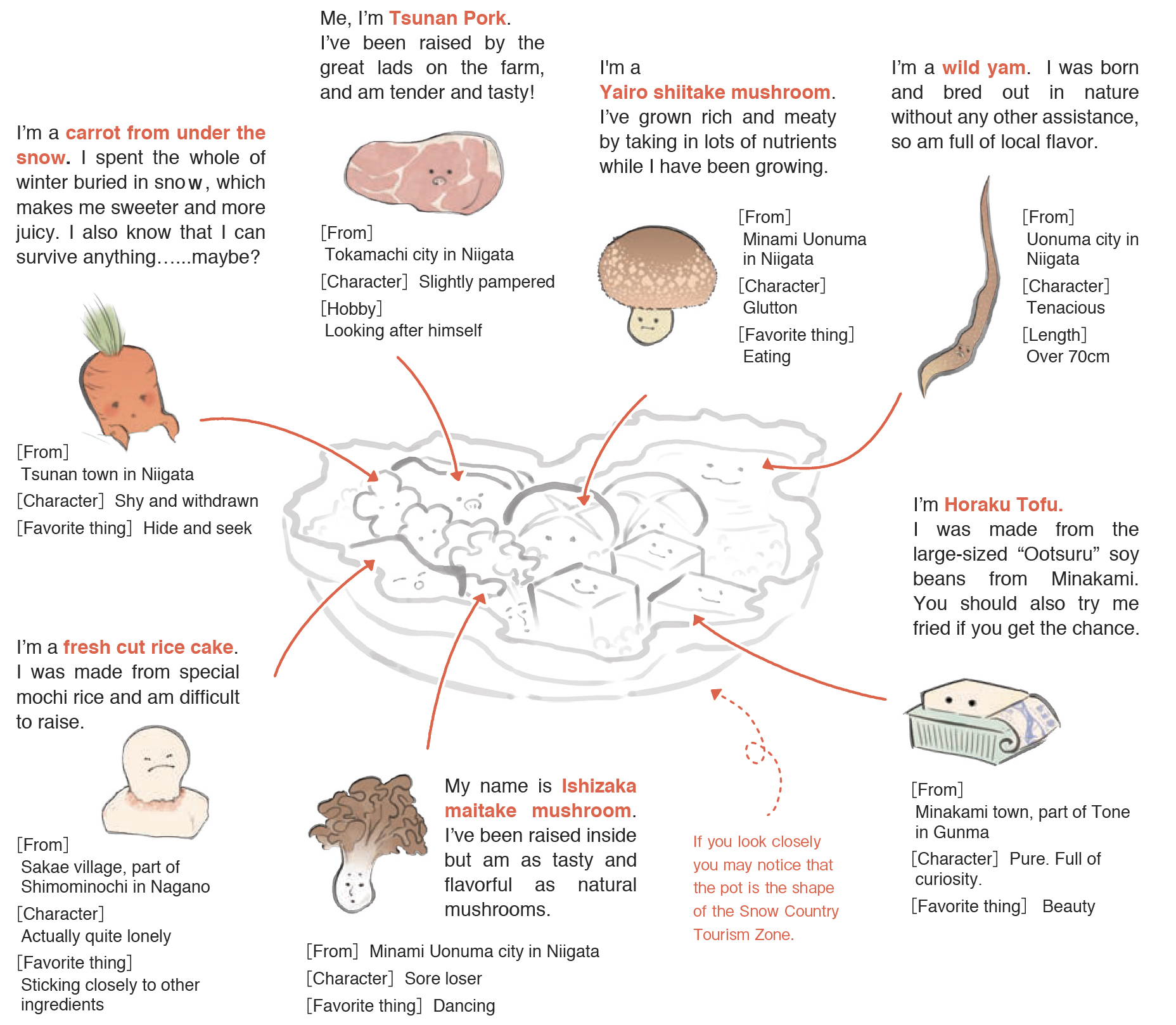
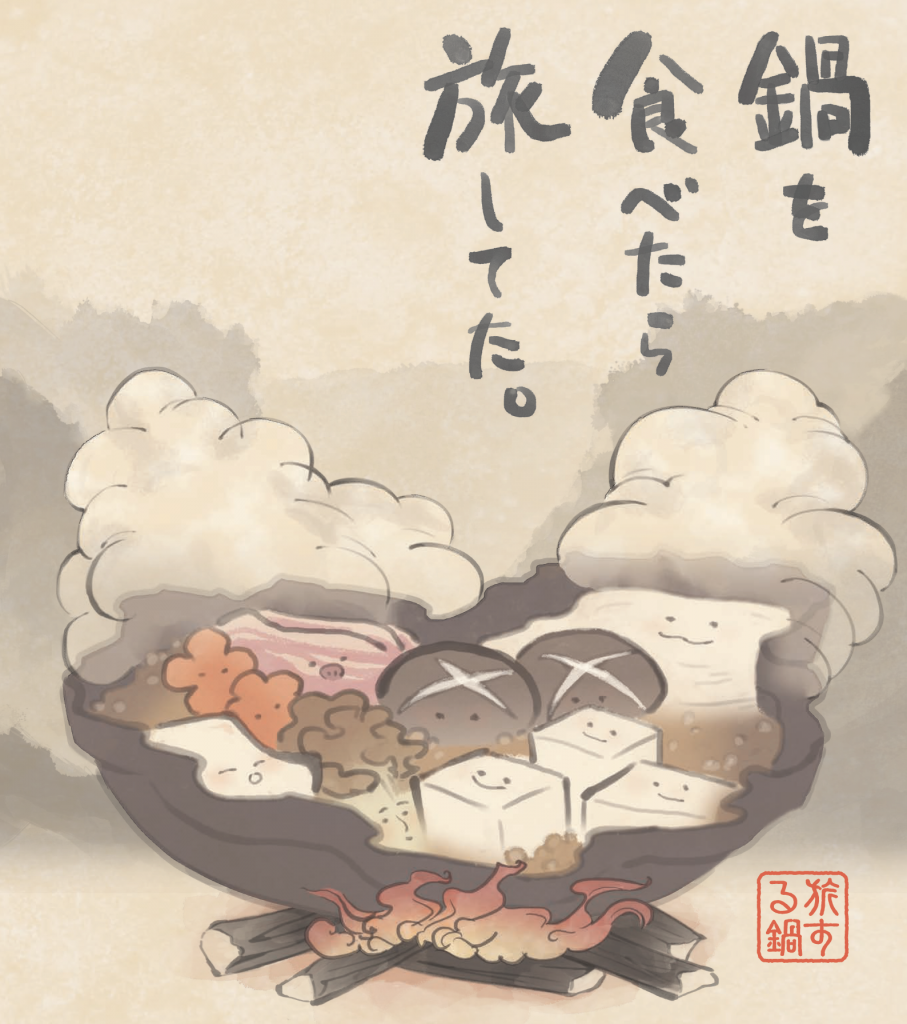
This is where you can find them!
Tsunan – Carrots under the snow
Fujimiya
They have a shop in Tokorozawa in Saitama called “Tsunan Fureai Center”
949-8202 Niigata-ken, Nakauonuma-gun, Tsunan-machi, Oaza-Ashigasaki 203
Tel: 025-765-2823
Fax: 025-765-2949
Minami Uonuma – Shiitake Mushrooms
Yairo Shiitake Cooperative
They are growing them to be as meaty as possible.
949-7231 Niigata-ken, Minamiuonuma-shi, Myogasawa 1473-25T
el: 025-780-1360
Fax: 025-780-1363
Sakae – Namakiri Mochi
Inaka Kobo
Stocking traditional countryside foods such as anbo, mushrooms, mochi, pickles and rice
389-2702 Nagano-ken, Shimominochi-gun, Sakae-mura, Hokushin 3636
Tel: 0269-87-3190
Fax: 0269-87-3195
Minakami – Horaku Tofu
Takumi-no-Sato Fukuju-Chaya
You can also try your hand at making tofu at Fukuju-Chaya(By reservation only, at least 2 days in advance)
379-1418 Gunma-ken, Tone-gun, Minakami-machi, Sukawa 847
Tel: 0278-64-2210
Fax: 0278-64-2220
Tokamachi – Tsunan Pork
Farmland Kiotoshi
Tsunan Pork is very well cared for, and is raised with great attention paid to the nutritional balance from the time the pigs are very young.
948-0304 Niigata-ken, Tokamachi-shi, Kiotoshi 1366-3
Tel: 025-761-1331
Fax: 025-761-1577
Uonuma – Wild Potato
JA North Uonuma Wild Yam Growers Cooperative (JA North Uonuma Yunotani Centre)
The friendly locals are working hard to bring you these yams from the rich surrounding nature of their hometown.
379-1418 Niigata-ken, Uonuma-shi, Iguchi Shinden 645-13
Tel: 025-792-2101
Minami-Uonuma – Ishizaka Maitake
Ishizaka Kinoko Cooperation
To bring you the most natural mushrooms possible we are doing everything we can to raise mushrooms as nature does.
949-6545 Niigata-ken, Minamiuonuma-shi, Nagasaki 3478
Tel: 025-782-0688
Fax: 025-782-9704
Things To Do
Gastronomy tours in Japan’s YUKIGUNI
Take a gastronomy tour to experience the blessings of the area with all five senses.
YUKIGUNI prepares for winter from spring to autumn because of its snowy and long winters. As a result of this, a rich knowledge of preservation, including fermented food, has been accumulated. YUKIGUNI Gastronomy Tours are an opportunity to immerse yourself in the unique food culture that emerges from this. YUKIGUNI is also famous for its sake, thanks to the abundance of pure water from the melting snow.

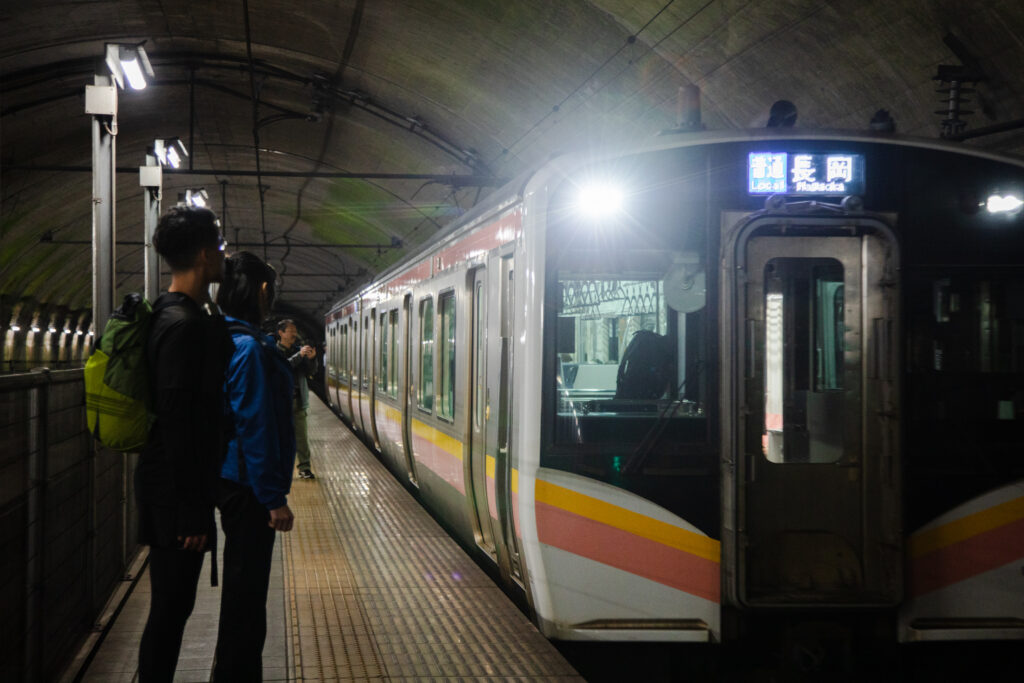
-1024x626-2.jpg)
